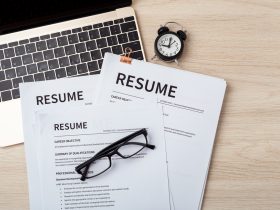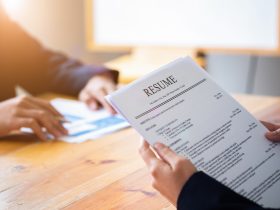Explaining Why is The Rejection Letter Important?
The importance of a rejection letter after an interview must be balanced. The rejection text expresses respect for the time and energy of the day. It also indicates a critical point in one’s experience. Additionally, it provides closure and maintains a positive perception of your company. This professional gesture opens the door for collaboration, turning rejection into a potential future hire. It upholds your company’s reputation and shows that you value every candidate’s contribution, regardless of the outcome. Ultimately, a well-crafted rejection letter reflects your organization’s integrity and commitment to maintaining positive relationships within the professional sphere.
Components of an Effective Rejection Letter
The components of an effective rejection letter include:
- Expressing gratitude.
- Delivering the news respectfully.
- Optional constructive feedback.
- Extending well wishes.
- Keeping the door open for future opportunities.
This balanced approach ensures considerate and professional communication with candidates, fostering positive impressions even in disappointment. Check out the steps and information on how to write a rejection letter after an interview.
1. Express Gratitude and Acknowledge Effort
As you begin, thank the candidate for their time and effort. Also, appreciate the person’s interest in the job. Doing these will have a positive effect. This way, you can show that your company values candidates and their contributions in job rejection letters after an interview.
2. Deliver the News Respectfully
Be direct and concise in delivering the news of the rejection. While it may be tempting to sugarcoat or provide excessive feedback, it’s important to remember that honesty and transparency are essential. Use a polite and empathetic tone to convey the decision.
3. Offer Constructive Feedback (Optional)
Provide feedback on days when possible. This step helps candidates improve their subsequent speeches. You can contribute to the candidates’ performance and abilities. It may be more productive to give feedback privately.
4. Extend Well Wishes
End your article by wishing the candidates success. Even if candidates are rejected, they can feel good thanks to these good wishes. This behavior makes the rejection letter after job interview better.
5. Keep the Door Open
A rejection letter after an interview is not a definitive end. End the candidate rejection letter after interview by leaving the possibility for future collaboration open. If applicable, mention that you’ll keep the candidate’s information on file for future opportunities. This can turn a rejection into a potential prospective hire.
Sample Rejection Letter After an Interview
Thanks to the sample rejection letter after an interview, it is possible to prepare quickly. You can read this example for how to respond to a rejection letter after an interview.
Dear [person’s name],
I want this message to find you well. We truly appreciate your time and effort in interviewing for the [Position Title] position at [Company Name]. Your thoughtful responses and interest in our company have been appropriately noted.
First, the evaluation was made carefully. However, another candidate with more suitable experience and skills has been selected for this open position. We realize this may disappoint you. At the same time, we would like to inform you that this decision was taken with great care, and we would like you to trust us in this regard.
We were particularly impressed with your [mention specific strengths or skills demonstrated during the interview]. Your [mention another positive aspect] showed your [mention a quality or skill], which is admirable.
Your experience and knowledge are essential and valuable. That’s why we keep your information even if we are pessimistic about the current job position. We will keep your content among those considering it for future business opportunities.
Please get in touch with me if you need more information or have any questions. I wish you success in your future life and business process.
Thank you again for considering [Company Name] as a potential employer.
Yours affectionately,
[Your Name] [Your Title] [Company Name]
Responding to a Rejection Letter
First, thank you for the Interview and express your acceptance of the decision taken. This professional approach shows the maturity of your style. In this way, leaving a positive impression on the employer is possible.
This is a sign of elegance and professionalism. Additionally, it keeps lines of communication open, potentially leading to future opportunities. Maintain your interest in the company and continue approaching it positively with a decent tone.
Remember to be polite when evaluating the rejection letter after interview template. While it may be disappointing, viewing the rejection as a stepping stone toward the right opportunity can help you stay motivated and resilient in your job search. A well-crafted response to a rejection letter demonstrates your character and leaves a lasting impression on prospective employers.
Don’t Forget When Ending
Sending job rejection letters after an interview is integral to the hiring process. It reflects your company’s values and professionalism. By following the outlined components and using the provided sample rejection letter as a template, you can ensure that candidates leave the experience with a positive view of your organization. A rejection today could be a potential hire tomorrow.









